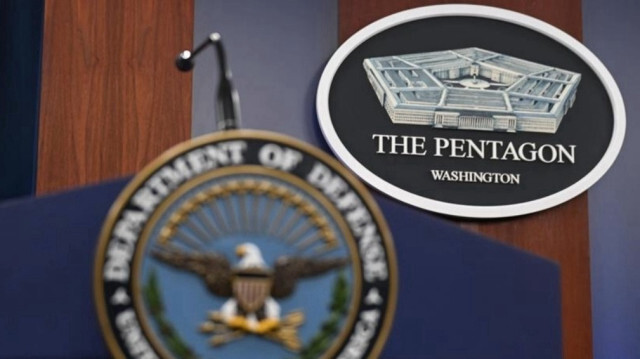Kristi Noem's Political Missteps and Controversies
South Dakota Governor Kristi Noem's political narrative takes a tumultuous turn, facing criticism over both a fictional meeting and the treatment of animals.
Published May 08, 2024 - 00:05am

Image recovered from bostonglobe.com
Noem wrote that when she was in Congress and serving on the House Armed Services Committee, she'd encountered Kim Jong Un, the ruler of North Korea.
"I had the chance to travel to many countries to meet with world leaders," Noem recounted. "I remember when I met with North Korean dictator Kim Jong Un. I'm sure he underestimated me, having no clue about my experience staring down little tyrants (I'd been a children's pastor, after all). Dealing with foreign leaders takes resolve, preparation, and determination."
It's not much of an anecdote. In fact, the only interesting thing about it is that it never happened. As The Dakota Scout reported, Noem's account is not backed up by congressional travel records. Her office didn't try to deny that the story was untrue -- spokesperson Ian Fury said on Friday the matter "was brought to our attention" and would be "communicated to the ghostwriter and editor." The book's publisher announced that "at the request of Governor Noem," the false anecdote would be removed from future printings.
"Further questions about the passage," the publisher added, "should be referred to the author."
So when Noem went on CBS's "Face the Nation" Sunday morning, moderator Margaret Brennan did just that. She asked Noem the obvious questions: Did you ever meet with Kim Jong Un? Why did you say you did?
The governor should have had a suitably contrite answer teed up. Something along these lines, perhaps: "No, I never met him and it was dumb to write that I did. I'm embarrassed. I apologize. It won't happen again."
But rather than meet the moment with candor, Noem replied with a gush of empty words.
"Well, you know, as soon as this was brought to my attention, I certainly made some changes and looked at this passage and I've met with many, many world leaders. I've traveled around the world. As soon as it was brought to my attention, we went forward and have made some edits. So I'm glad that this book is being released in a couple of days, and that those edits will be in place, and that people will have the updated version."
Brennan tried again. "So you did not meet with Kim Jong Un?"
Noem blustered on. "No, I've met with many, many world leaders -- many world leaders. I've traveled around the world, I think I've talked extensively in this book about my time serving in Congress, my time as governor, before governor, some of the travels that I've had. I'm not going to talk about my specific meetings with world leaders, I'm just not going to do that."
The deeper the hole grew, the more energetically Noem dug. "This book is a powerful book, it's an honest book," she declared. She insisted she was "not retracting anything." When Brennan observed that Noem must have known exactly what was in "No Going Back" since she personally narrated the audiobook version, the governor complained about "being treated differently than every other person that you've interviewed."
It was a pathetic performance -- and Noem compounded it with an equally cringe-inducing interview on another CBS program the following morning.
Why do so many politicians do this? Voters are not idiots. They can tell when an official is insulting their intelligence. Noem's evasiveness calls to mind Charles Durning's scene-stealing turn as the governor in "The Best Little Whorehouse in Texas," boasting of his ability to "dance a little sidestep" to avoid challenging questions. But where the Durning character was a self-mocking rogue, Noem came across as humorless and fake.
Shrewder politicians can transform an admission of fault into an asset. Boston's James Michael Curley, convicted of fraud for helping two applicants cheat on the civil service exam, spun the crime to his advantage with the slogan "he did it for a friend." When New York Mayor John Lindsay ran for reelection in 1969, he called attention to his worst failures with radio ads admitting he had made big mistakes -- and went on to win a second term.
In politics, the best way to neutralize a blunder is to own it, whether by admitting it forthrightly, playing it for laughs, or turning it into a virtue. Noem did none of those. The result? A political career some had thought might carry her all the way to the White House is now going nowhere fast.
Questions about the veracity of politician's claims are nothing new in the realm of politics, though in the internet age, the scrutiny and fact-checking occur at lightning speed. Noem's fabricated encounter undermines the trust that the electorate may place in their leaders and serves as a cautionary tale about the importance of integrity in public service. It also begs the question of how such an egregious falsehood could have ended up in the text in the first place, raising concerns about the fact-checking processes employed by politicians and their editorial teams.
In her CBS interview, Governor Noem missed an opportunity to demonstrate accountability to the public and the grace to admit a mistake. Admitting to and correcting falsehoods can exemplify a leader's strength of character and bolster public trust. Rather than providing clarity, Noem's ambiguous responses and refusal to engage directly with the question presented a missed opportunity for demonstrating such leadership and perhaps could have served as a reparative step toward regaining public confidence.
The spread of misinformation has been a major subject of debate, not only among politicians but also within the general public, and incidents like these highlight the ongoing challenges in maintaining a factual and honest discourse. In an era where fact-checks are standard practice for many readers, unverified statements can be swiftly discredited, thereby damaging the credibility of the speaker. Governor Noem's situation underscores the necessity for public figures to maintain a rigorous commitment to truth, as well as the potential consequences when this commitment is called into question.
Though her aspirations for higher office may be impacted by this revelation, Noem's future in politics now rests on her ability to rebuild trust with a public that values authenticity and transparency in their elected officials. As the public becomes increasingly adept at navigating political narratives and discerning fact from fiction, it stands to reason that politicians will have to adapt to an environment where the truth is not just expected but demanded.
While the future ramifications of Noem's misstep remain uncertain, the incident itself serves as a stark reminder of the fragile nature of public trust in democratic institutions. At a time when faith in governance is already on shaky ground, truthfulness from public officials is more imperative than ever. For reviewers of her book and the voting public alike, Noem's response could be a defining factor in her political legacy.






